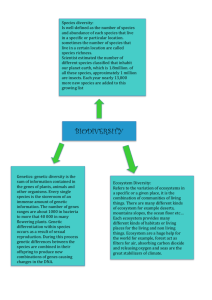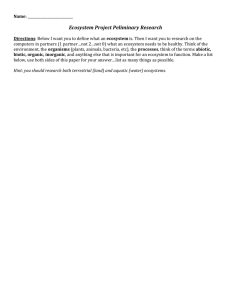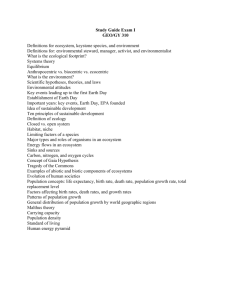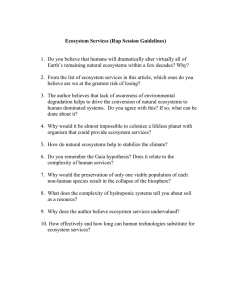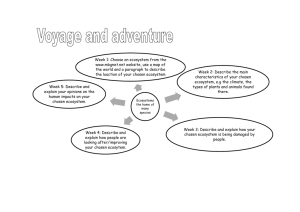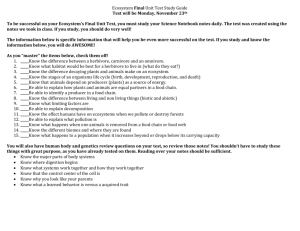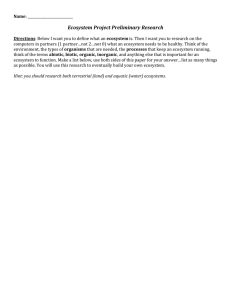1.4: Classifying Types of Biodiversity pg. 31 area.
advertisement
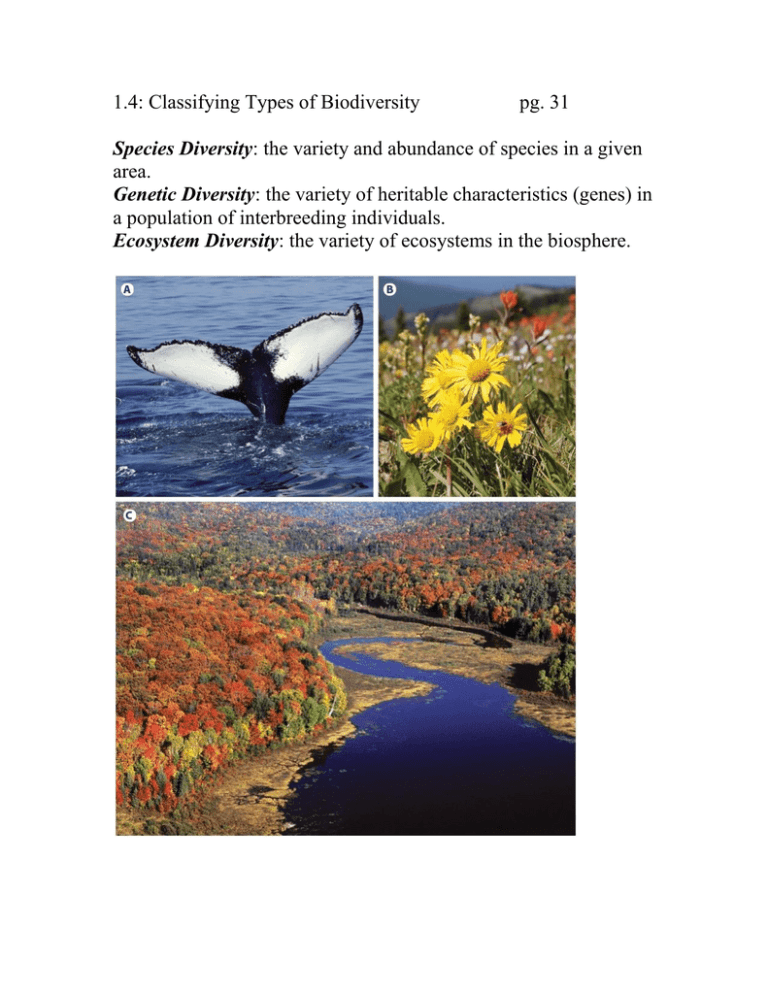
1.4: Classifying Types of Biodiversity pg. 31 Species Diversity: the variety and abundance of species in a given area. Genetic Diversity: the variety of heritable characteristics (genes) in a population of interbreeding individuals. Ecosystem Diversity: the variety of ecosystems in the biosphere. Genetic Diversity Genes are the genetic material that controls the expression and inheritance of traits. The variation among individuals in a population is the result of the differences in their genes. The genetic diversity within a population is known as the gene pool (p + q = 1.00). The gene pool is the sum of all versions of all genes within the population. Genetic Diversity Provides Resistance to Disease Genetic diversity is especially important to disease resistance. Populations that lack genetic diversity are more susceptible to disease than those that have a higher diversity. A disease can eliminate an entire population of a species, and lead to extinction if there is not enough diversity. Genetic diversity also allows a specie and population to survive changes in the environment. Genetic Diversity Supports Conservation Biology Learning Check: questions 18 – 23, pg. 33 Ecosystem Diversity Ecosystem diversity refers to the variety of ecosystems in the biosphere. The ecosystem is made up of biotic (living) factors and abiotic (non-living) factors. The Earth’s surface is highly varied physically and chemically. Ecosystem Services Ecosystem services are the benefits experienced by organisms, including humans, which are provided by sustainable ecosystems. (Carbon sink holes, and soil fertility) Ecosystem Function and Species Diversity Resilience: the ability of an ecosystem to remain functional and stable in the presence of disturbances to its parts. An ecosystem with greater species diversity, provides important ecosystem services more reliably. Also with species diversity an ecosystem show more resilience, ability to maintain an equilibrium or balance, in response to significant outside disturbances. Ecosystem Services and Human Actions Humans sometime make changes to an ecosystem to enhance the services of the ecosystem. These changes may lead negative impacts on the natural ecosystem. e.g.: Ontario – stocking lakes with smallmouth bass. Biology Connections, pg 36 Section 1.4 Review: questions 1 – 11, pg. 37 Chapter 1: Review: questions 1 – 35, pg. 45 – 47 Chapter 1: Self Assessment: questions 1 – 23, pg. 48 – 49
